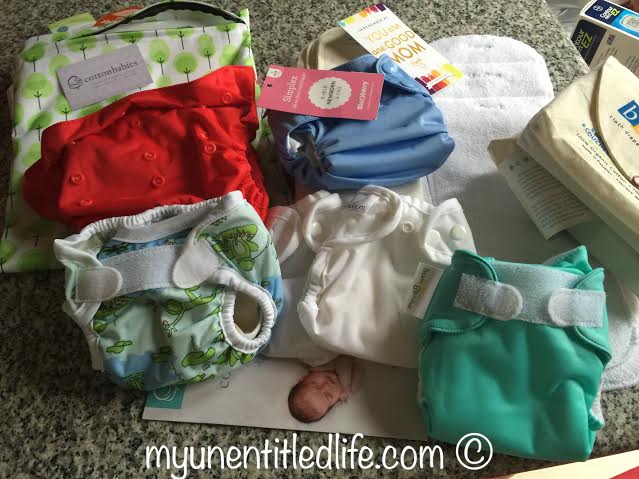How To Support Important Standards Through Ethical Consuming
Understanding Ethical Consuming: Making Purchases That Truly Matter
Ethical consuming is not just about buying a product or a service; it’s about making informed decisions that have a positive impact on society and the environment. It might seem overwhelming at times, especially when we are in a hurry to grab a quick drink at a convenience store. We may not have the time or the inclination to ponder over the history of the company we are buying from. However, it is crucial to understand that our purchasing power can influence industries and create change.
When it comes to more substantial or recurring purchases, or when considering industries that matter to us, we can decide to use a more comprehensive set of purchasing filters. This will not only benefit us as consumers but also help our money do some good.
Enjoying and supporting industries that align with our interests is one thing, but advocating for new norms within these industries can be even more impactful. Here are some ways you can make your purchases count by adopting ethical consuming habits.
Support Consumer-Friendly Practices
Ethical consuming involves recognizing your worth as a consumer. Yes, companies need to earn profits, but not at the expense of their consumers. Some companies go above and beyond for their supporters, implementing ethical practices such as reducing their environmental impact, and genuinely contributing to social issues, not just for marketing purposes.
Consider the ethical shopping guide provided by The Guardian, for example. It’s a helpful resource for identifying companies that value their consumers. By supporting these companies, we are encouraging the changes we want to see in the industry.
Support Legitimate Industries
Another facet of ethical consuming is supporting legitimate industries. An excellent example of this is understanding the intricacies of fashion intellectual property efforts. These efforts help prevent counterfeits and copyright infringements, thereby supporting the genuine creators.
Choosing to save up and purchase an authentic item can be a powerful stance in the industry. This principle applies to not just the fashion industry, but also to smaller business communities or local artistic ventures, like short films. Remember, your money has the power to influence and change industries.
Make Your Voice Heard
If something matters to you, speak up. Post on social media, fill out feedback forms, take business surveys, and contact support if you encounter a problem. Call for the standards you care about. If you decide to boycott a company, let them know why. Praise firms taking positive and ethical steps forward.
Consider the power of social media in the case of the #DeleteUber movement. After a series of controversial actions, a significant number of users deleted their Uber app in protest, leading to substantial changes within the company. Your voice and your actions can have a significant impact on how businesses operate.
You have more power in expressing yourself than you might think. With this advice, we hope you can start making your purchases more impactful through ethical consuming.
FAQs About Ethical Consuming
What is ethical consuming?
Ethical consuming is about making informed purchasing decisions that have a positive impact on society and the environment.
Why is ethical consuming important?
Ethical consuming is crucial because it allows consumers to use their purchasing power to influence industries and create positive change.
How can I practice ethical consuming?
You can practice ethical consuming by supporting consumer-friendly practices, supporting legitimate industries, and making your voice heard when something matters to you.
Adopting ethical consuming habits may require a bit of extra effort, but the positive impact it can have on society and the environment is worth it. Remember, your money has power, and using it wisely can create a better world for us all.
| Ways to Support Ethical Consuming Measures | Description |
| — | — |
| Support Consumer-Friendly Practices | Identify companies that prioritize customers over shareholders. Look for firms that actively reduce their environmental impact and contribute to social issues, not just for marketing purposes. |
| Support Legitimate Industries | Understand the importance of legitimate industries like fashion intellectual property. Avoid purchasing counterfeit items and support local businesses and artistic ventures. |
| Make Your Voice Heard | Use social media and other platforms to express your opinions and call for standards that you care about. If boycotting a company, let them know why. Congratulate firms that take positive and ethical steps forward. |

Delving Deeper into Ethical Consuming
As we further explore the world of ethical consuming, we find that it’s more than just a trend or a passing fad. It’s a lifestyle choice that seeks to promote sustainability and social justice. It’s about making conscious decisions that align with our values, and understanding that our choices have broader implications beyond our immediate needs.
Understanding the Impact of Our Purchases
Every purchase we make is, in essence, a vote. When we buy a product, we are supporting the company that makes it and the practices they employ. This means that our purchases can either contribute to harmful practices or promote positive change. Therefore, understanding the impact of our purchases is a crucial aspect of ethical consuming.
For instance, when we buy from a company known for its exploitative labor practices, we indirectly support those practices. On the other hand, when we choose to buy from a company that values fair trade and sustainable practices, we help to encourage and promote those practices.
Choosing Ethical Brands
Choosing to support ethical brands is a significant step towards ethical consuming. However, this can be a daunting task, given the plethora of options available in the market. It’s essential to do some research and understand a brand’s values and practices before making a purchase.
Look for brands that are transparent about their supply chains, pay fair wages, and have sustainable practices. Certifications like Fair Trade, Organic, and Rainforest Alliance can be helpful indicators of a brand’s commitment to ethical practices.
Embracing Minimalism
Ethical consuming is also about embracing a minimalist lifestyle. This means buying less and choosing quality over quantity. By limiting our consumption, we can reduce our environmental footprint and promote sustainability.
For example, instead of buying fast fashion items that will only last a few wears, consider investing in high-quality pieces that will last for years. This not only reduces waste but also promotes industries that value quality and sustainability over fast and cheap production.
Participating in the Circular Economy
Another aspect of ethical consuming is participating in the circular economy. This involves buying second-hand items, recycling, and supporting companies that offer repair services. By doing so, we can help reduce waste and promote a more sustainable consumption model.
Platforms like eBay, Depop, and ThredUp have made it easier than ever to buy second-hand items. Similarly, companies like Patagonia, which offer repair services for their products, are helping to extend the lifespan of items and reduce waste.
FAQs About Ethical Consuming
What is the circular economy?
The circular economy is a consumption model that aims to minimize waste and make the most of resources. It involves reusing, sharing, repairing, recycling, and upcycling products as much as possible.
How can I participate in the circular economy?
You can participate in the circular economy by buying second-hand items, recycling, and supporting companies that offer repair services.
What is minimalism?
Minimalism is a lifestyle choice that involves buying less and choosing quality over quantity. It’s about reducing our consumption and focusing on what truly matters.
In conclusion, ethical consuming is about making conscious purchasing decisions that align with our values and understanding the broader implications of our choices. It’s about supporting ethical brands, embracing minimalism, and participating in the circular economy. Remember, every purchase is a vote, and your money has power. Use it wisely to create a better world for us all.
Additional FAQs About Ethical Consuming
What are some examples of ethical consuming?
Examples of ethical consuming include buying products made from recycled materials, supporting companies that pay fair wages, and purchasing from businesses that practice sustainable farming or manufacturing.
Can ethical consuming really make a difference?
Yes, ethical consuming can make a significant difference. When enough consumers make ethical choices, it can influence companies to adopt more ethical and sustainable practices. This can lead to changes in industry standards and contribute to a healthier environment and better social conditions.
How can I find out if a company practices ethical business methods?
Research is key. Look at a company’s website for information about their business practices. Independent certifications, like Fair Trade or Certified Organic, can also be a good indicator. Websites like The Guardian’s ethical shopping guide can also be helpful resources.
Is ethical consuming more expensive?
While some ethically-produced goods may be more expensive due to factors like higher production costs, not all ethical consuming choices will cost more. For example, buying secondhand items or choosing products with less packaging can actually save money. Furthermore, the long-term benefits of ethical consuming, such as environmental sustainability and improved social conditions, can outweigh initial costs.
What if I can’t find ethically-produced options for a product I need?
If you can’t find an ethically-produced option, consider whether the product is truly necessary. If it is, look for the option that has the least negative impact. You can also voice your desire for more ethical options to stores and companies, as consumer demand can drive changes in product offerings.
How can I make my voice heard as a consumer?
There are several ways to make your voice heard. You can choose to support companies that align with your values and avoid those that don’t. You can also use social media or other platforms to publicly express your opinions. Additionally, contacting companies directly to provide feedback can be an effective way to advocate for change.
What are some challenges to ethical consuming?
Some challenges to ethical consuming include lack of information, higher costs for ethically-produced goods, and limited availability of ethical options in some areas. However, these challenges can often be overcome through research, budgeting, and advocating for more ethical product offerings.


